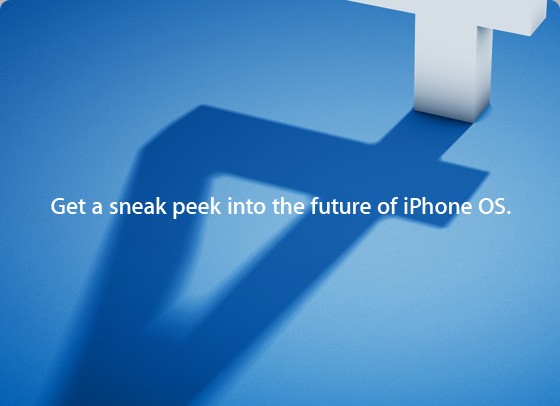
Is iPad really just a proof-of-concept device?
Today, Apple announced modest launch-day iPad sales of 300,000 units, which include preorders. On March 26, in post "Of course media bias favors Apple," I put launch sales at about 330,000 -- based in part on over-widely reported rumors. Five days earlier, in post "Be smart, don't buy into iPad hype," I warned that bloggers, journalists and Wall Street analysts had gone bonkers over the device, losing some common sense along the way. Piper Jaffray analyst Gene Munster is among them. Over the weekend, he revised first day iPad sales to 600,000-700,000, leading to today's admission he got it wrong. Munster also lowered full year sales estimates to 4.3 million from 5.6 million. Forrester Research forecasts 3 million iPad shipments.
Modest initial sales aren't surprising, even though some Apple watchers will wonder if 300,000 units live up to the hype. As I explained on April 2, modest early sales follow the pattern of most other new-category Apple products, including Macintosh, iPhone, iPod and iTunes Store. Distribution is limited to the United States and the 3G model isn't yet available, which also mitigate early sales.

Second site: Making the Web more accessible to the visually impaired
As the population ages, financial institutions and other service providers will have to learn to adapt their marketing approaches to appeal to a sector that has high disposable income and substantial spending power. In some cases, they will also have physical limitations that will impede online activities, including vision loss.
Besides the fact that an aging population brings with it a growing number of people with vision loss, the business and legal case for making Web content accessible to the visually impaired is becoming increasingly strong.

End of the road in sight for Windows on Itanium
It was perhaps one of the most drawn-out, painful launches in Intel's long history: the introduction last February of Tukwila, the latest generation of its Itanium 64-bit processor architecture. Not everyone in the Itanium Solutions Alliance hung on for the five-year ride, with Unisys having been its most prominent drop-out last year, citing competitor HP's dominance in the field. Microsoft held on for the entire stretch; but last week, the company announced it would not lend its support to whatever the generation after Tukwila might become.
In a blog post last Friday, Windows Server Senior Technical Product Manager Dan Reger said that his company will continue to support existing Itanium architecture, including Tukwila, for another eight years. But Windows Server 2008 R2 will be the last version of the operating system to support IA-64.

Skyfire is coming very soon to Android
Third-party mobile browser Skyfire is regarded by many to be the best way to consume the Web on the go. With its support for all of the major browser plug-ins, and full server-side rendering, it can provide access to more sites than any other mobile browser, and do it quickly.
It was officially released a little less than one year ago on Windows Mobile and Symbian S60, and has seen one major update since that time. It has not, however, managed to be released on any new platforms, there has been a very early version for BlackBerry, but that has not progressed to the release stages.

Less than a week after launching iPad, Apple to show iPhone OS 4
Now that the iPad is no longer a mystery, Apple is sparking up its magic machine to get people talking and rumoring again.
In classic fashion, Apple has sent out invitations to an event it will be holding this week, which contain only a little detail but a lot of room for speculation and excitement.

California Inventor who sued Apple over the iPhone sues over the iPad
In October 2008, Californian Elliot Gottfurcht was granted a patent for
"Apparatus and method of manipulating a region on a wireless device screen for viewing, zooming and scrolling internet content."
One month later he sued Apple for infringing on that patent.

Obama vs. Congress on radio's royalties exemption
Perhaps the word that best describes the atmosphere in Washington this year is "showdown," with respect to every political issue imaginable -- even those around which there's technically no disagreement. The debate continues over whether terrestrial radio broadcasters (the ones with the big transmitters and the public airwaves) should begin paying the same performers' royalties as Internet broadcasters like Last.fm and Pandora, even though it often seems drowned out by the noise over the just-passed health care reform act, and ongoing legislation on jobs protection and banking reform.
Now, the US Commerce Dept. has come down squarely on the side of the recording industry and rights holders. In a letter sent April 1 to Senate Judiciary Committee Chairman Patrick Leahy (D - Vt.), Commerce Dept. General Counsel Cameron F. Kerry urged Congress to pass legislation that would apply Pandora's royalties to radio stations.

Apple announces first day iPad sales
If you were sucked into the black hole of iPad hype, you may have guessed that Apple sold half a million or more of its new tablet on the first day, but really it was about average when compared to iPhone launches.
Piper Jaffray analyst Gene Munster first predicted Apple would sell between 200,000 and 300,000 iPads on its first day of availability, but then after his team gathered data and compared it to previous Apple device launches, he bumped up his first day sales estimate to between 600,000 and 700,000.

Could this be the rarest video game of all time?
In February, the mainstream news media picked up a story about a rare 8-bit Nintendo game called Bandai Stadium Events that sold for $13,000 on eBay. The story was widely circulated mostly because the seller had no idea that the game was special in any way. The North Carolina mother who put the auction up was apparently unaware that she was selling a game that was only released in a handful of U.S. markets before it was quickly recalled, making it one of the rarest games for the Nintendo Entertainment System.
Then another copy of the same game turned up on eBay less than a month later from a seller who heard about the huge bids on the last auction. The copy that he put up managed to be an even rarer version, because it was sealed in its original box. That seller reportedly earned a whopping $41,300 for it.

Will iPad bomb or be the bomb?
I'm now convinced that iPad can't fail, if for no other reason than the momentum of hype. Too many people believe in iPad. It's like a religion. But there are measures of success, and I don't expect iPad will be a fast starter -- nor does it need to be. Forrester Research conservatively forecasts Apple selling 3 million iPads this year.
Apple's history of new product categories is evidence enough that iPad sales will slowly proceed -- after a modest early surge -- before really taking off. For example, Macintosh (in 1984), iPod (in 2001) and iPhone (in 2007) all started off modestly. Some overly enthusiastic Mac fans will question any assertion that iPhone sales started off modestly. Hey, but they did compared to what came later. Apple reached 1 million iPhone v1 shipments in 74 days, a number later paled by iPhone 3G and 3GS launches.

Rating three months of personal iPad punditry
Tomorrow morning, Apple's iPad goes on sale. Today is then perhaps a good time for assessing my last three months of prognostications about the tablet. I have not exactly been iPad's biggest fan, and I'll admit some of that trepidation is reaction to my journalist peers going so gaga over the device -- pretty much sight unseen.
Earlier today at BoingBoing, Cory Doctorow wrote: "I think that the press has been all over the iPad because Apple puts on a good show, and because everyone in journalism-land is looking for a daddy figure who'll promise them that their audience will go back to paying for their stuff." I agree.

Google is armed for iPad launch
Google today announced its strategy for delivering services on the iPad, and unveiled a new mobile Gmail interface optimized for bigger touchscreens. Since the iPad lies somewhere between a notebook and a smartphone, the Mountain View search company is taking a hybrid approach, offering some services in their desktop format, some in their mobile format, and some as standalone apps.
"We're particularly excited by how tablet computers create the opportunity for new kinds of user interaction," Punit Soni, Product Manager for Google Mobile wrote in the official Google blog. "Here on the mobile team, we often talk about how mobile devices are sensor-rich: they can sense touch through their screens, see with a camera, hear through a microphone, and they know where they are with GPS. The same holds true for tablet computers, and we're just starting to work through how our products can become even better on devices like the iPad."

RIM approaches the edge: BlackBerry needs a reboot, fast
Is the BlackBerry beginning to go bad?
It's becoming increasingly difficult to ignore the rising volume of speculation that the smartphone that started the smartphone revolution may be moving into a bit of a middle-aged funk. The share price of BlackBerry maker Research In Motion took a hit Thursday after the company reported lower-than-expected earnings for the last quarter. Although bottom line revenue rose by 37% and the company added 4.9 million subscribers globally, the numbers failed to meet expectations and spawned growing concern that RIM's best days may be behind it.

How do you follow up after your app is a smash hit?
Shazam is a brilliant application. If you want to identify a piece of music that is playing, all you have to do is hold up your smartphone, and the Shazam app will tell you what it is based on its "audio fingerprint." It's simple to use, handy to have, and available on most mobile platforms. Though the idea behind Shazam wasn't exactly new, it arrived when the app store craze took off, and has since climbed to impressive heights.
It has 50 million users in 200 countries and has enjoyed a sustained growth of half a million new users per week for more than a year. Shazam has been downloaded more than 1 million times from Nokia's Ovi store, it was the #1 application on BlackBerry App World's launch date, it's Android's third most-downloaded app of all time, and it's Apple's biggest reseller of iTunes music on mobile devices.

What does Steve Jobs' 'inner circle' say about Apple?
Over at Digital Inspiration, Amit Agarwal asserts there is an inner circle of 10 journalists that get advance review access to hot new Apple products -- ah, like iPad. The first iPad reviews appeared overnight, and many of them are quite favorable. The reviews come just days before iPad goes on sale -- Saturday 9 a.m. local time here in the United States.
Agarwal does an excellent job detailing the three-phase process, who is in the inner circle and what are the benefits to Apple. I won't repeat what he so astutely explains. Read his post. Too much Web content is the regurgitation of what someone else reported, rather than bloggers or journalists doing original reporting. However, Agarwal graciously gave me permission to use the inner circle graphic he created. If you don't know who these people are, read Agarwal's post!



